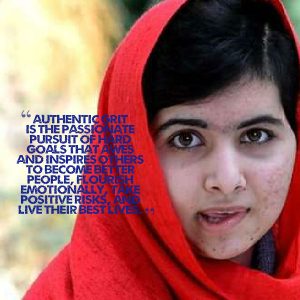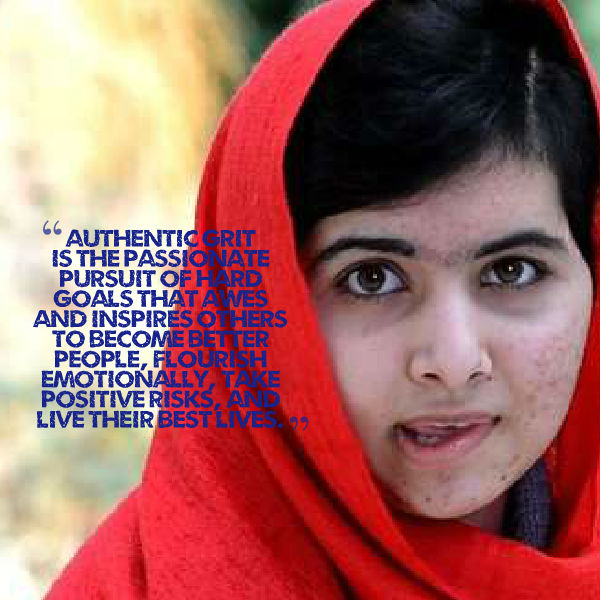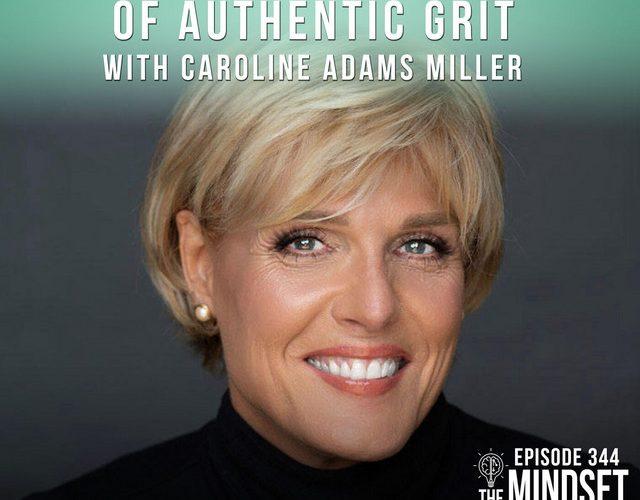Law Practice Today – June 2016
The Attorney Well-Being Issue
By Caroline Adams Miller, MAPP
Last fall, I finished speaking about grit to a packed gym in an affluent community outside of Dallas, Texas when a woman rose to make a comment.
“Your talk helps me understand why our firm just fired a brilliant young graduate from Yale Law School,” she said. “From the beginning, she acted as if she was better than everyone else, and like we were fortunate to have her working with us. She never wanted to work late or do what she felt was beneath her, and she always had excuses for why she couldn’t pitch in when other people needed help. We warned her several times that she wasn’t meeting our expectations for teamwork and effort, and finally we had to let her go for poor performance. And guess what? She threatened to sue us.”
This story illustrates a problem that is familiar in many workplaces, including law firms, because of the influx of the Millennials (born between 1980 and 2000), who now outnumber Baby Boomers. Many employers have questioned the work ethic and sense of entitlement of members of this generation. Although there are exceptions to every rule, by and large this generation has been found to be emotionally and physically fragile, slow to take initiative, and whiny when challenged.
Some observers assert that this is because they’ve been raised in a sanitized, “safe” world, starting with baby-proofed houses, dumbed-down playgrounds, trophies for participation, easy As, and politically correct communities and college campuses where victimhood is embraced and free speech is called “microaggression.”
When they enter the workplace, they don’t know how to set hard goals and be resilient in the face of setbacks, so excellence has been replaced by “good enough,” and discomfort is met with quitting.
Law firms, which are notorious for long hours and high expectations, can be especially daunting for a generation that has always been coddled and praised. As a result, some in legal circles express consternation and bafflement about how to motivate, evaluate, and reward this generation, so that the workplace is harmonious and productive, and enough associates do work that earns them partnership status.
Some of the unique challenges facing law firms now include a number of eyebrow-raising statistics about lawyers’ well-being. Specifically, lawyers are often cited as being among the most depressed and anxious professionals, with the exception of trial lawyers and public defenders, because of the seven-day workweek, absence of meaningful client engagements, high stress, and low decision-making authority.
It’s also thought that learning to focus on identifying problems during law school can change one’s overall outlook from optimistic to pessimistic, all of which can contribute to disengagement, lack of resilience, and depression.
The word that sums up much of what some Millennials are lacking—and that has never been more essential in law firms—is “grit,” which has been defined by Dr. Angela Duckworth as “passion and perseverance in pursuit of long-term goals.”
Duckworth has studied this quality for over a decade at the University of Pennsylvania, and even won a MacArthur genius grant in 2013 for her research and findings about what she has called “the secret to success.” Her 10-question Grit Scale—scored from one to five—has been found to predict one’s ability to thrive and survive in a number of challenging settings, including being selected for Green Beret special forces units, surviving the first summer at West Point, remaining a married man, completing college, and even becoming a finalist in the National Spelling Bee.
Part of the reason law firms are so interested in grit is because women with high grit scores are more likely to become partner, but being gritty in a law firm—or any workplace—carries more benefits than simply rising to the top of tough competition. For example, people with grit don’t give up when work is overwhelming or difficult. They elevate the quality of the teams they are on because of their uncomplaining attitude, they inspire others to be resilient and passionate, they are more engaged in their work, and they don’t necessarily grab credit from others because of their inherent humility and ability to delay gratification.
Not all grit is good, though. Having too much of the wrong kind of grit can be a negative when goals are pursued for the wrong reasons and in destructive ways.
If an organization isn’t careful, conditions like “stupid grit” and “selfie grit” can wreak havoc on a company’s morale and the health of its employees. So understanding the best types of grit, how to cultivate its components, and how to encourage the right dose in the right settings, is something that every law firm needs to invest in if its workers are going to thrive in today’s demanding economy.
What is the right type of grit for the workplace? The most positive type of grit, which I call “authentic grit,” is defined as “the passionate pursuit of hard goals that awes and inspires others to become better people, flourish emotionally, take positive risks, and live their best lives.”
This is the type of grit you see when someone goes outside their comfort zone to attempt an meaningful achievement that carries the risk of failure, but that is central to a person’s purpose in life. Malala Yousafzai, the Afghan teenager who overcame the Taliban’s assassination attempt to continue her work to fight for female education, has authentic grit, and so did historic figures like Martin Luther King Jr. and Susan B. Anthony. These larger-than-life figures have a type of authentic grit that I dub “Mt. Rushmore grit,” because their resolve and actions changed the course of history and made the world a better place.
Not all grit has to involve Olympic gold medals or national headlines, though. One type of authentic grit is “ordinary grit,” and that is the behavior we see in people all around us, who are pursuing such workaday goals as remaining sober for decades, holding steady jobs despite physical disabilities, and devoting time to charities without seeking recognition. How they carry on in spite of disdain, unpopularity, and challenge is what awes and inspires others to up their own game.
Duckworth’s work has found that grit is a contagious quality, so the workplace that creates a culture where the qualities that feed into grit can thrive, qualities such as persistence, humility, hope, zest and self-regulation, is one that will help everyone else to thrive, too.
I interviewed a law firm partner in Washington, D.C. for my upcoming book, Getting Grit (SoundsTrue, 2017) about how she spots grit in applicants, and why she feels it is so important to hire people who can bring ordinary grit into her firm.

She described a young man named Joey, whose life had been one long series of setbacks and upheaval, but who had moved out of his foster family’s house at 18, somehow scraped up enough money to rent an apartment and adopt his little brother, and had put himself through college and law school with loans, jobs, and endless days of family responsibilities and juggling of his own goals. In spite of what many would see as limiting conditions, Joey had maintained a sense of optimism and humor, qualities that the partner had found were important in success at her fast-paced, pressure-filled office.
The partner ultimately decided to hire Joey for a number of reasons, including his demonstrated work ethic, academic success, and conscientiousness. The package of character strengths and life story outweighed any concerns about Joey’s second-tier law school, which she had discovered was not a liability because of the firm’s previous problems with Ivy League law school graduates.
Like everyone I interviewed from across a variety of professional spheres, she noted that grade inflation had made GPAs almost meaningless in assessing candidates, and that she had learned to look for other determining factors. Echoing the lawyer who’d stood up after my speech near Dallas, she noted that the applicants who came in feeling like they had something to prove worked harder and acted less entitled than the students they had once favored from places like Harvard, Yale, Columbia, and Stanford.
“I want people who will be part of my team, and who will stay late and cover for me, if necessary,” she said. “Joey is grateful for every opportunity he is given, he volunteers for every committee, and he doesn’t have to be mentored or babysat on every assignment. I want people who will do what we ask them to do—not people who feel they have to be mentored and rewarded all the time, and who need to be patted on the head every time they do a brief.
“I don’t care if you got an A in con law,” she continued. “I care that you will work hard.”
The Ross School of Business at the University of Michigan has found that every workplace has what they call “energy hubs,” which consist of “positive energizers” who motivate and inspire others to do their best. Embedding people like Joey in law firms could have a similarly positive contagious impact, spreading strengths of persistence and optimism, among others.
In fact, one Tennessee high school football team found that the mere presence of their assistant coach, an Iraqi veteran who had lost his legs in a land mine, resulted in more effort and fewer whiners than the team had seen previously.
Authentic grit is characterized by humility, a trait that is often at odds with the 21 century culture of taking credit and trumpeting one’s own success from the rafters and on social media. Humility isn’t necessarily a quality that makes a person happier, but it does enhance teamwork and has been dubbed the “social lubricant” by researchers who note that people are more likely to trust a colleague who isn’t always just looking out for himself or herself.

The opposite behavior, “selfie grit,” which is defined by bragging about one’s own successes and monopolizing the spotlight, doesn’t build harmony. A Notre Dame football coach once chastised a wide receiver who had caught a pass for a touchdown and celebrated with a “look at me” dance, telling him he would be disciplined if he ever did it again. “What about the guys who blocked for you? Did you see them showboating? Don’t ever think that you did these things yourself, and that you should take public credit.”
Another negative form of grit is “stupid grit,” which is characterized by working stubbornly at a goal for longer than necessary, not heeding the signs that it isn’t useful any longer, or failing to listen to advice from colleagues. Stupid grit is not just failing to pivot at an important moment because circumstances dictate a different approach—another example is a person who compromises their health by ignoring warning signs of working too late, drinking too much and eating poorly.
I coached a female lawyer several years ago whose children hid her Blackberry one day, upset that she never seemed to pay attention to them at meals or in the evenings during “family time.” Chastened, she told her clients she would no longer be responding to emails between 7pm and 7am, and she signed up for a 5am boot camp class to get back into shape and prioritize her health.
One year after this shift, she reported to me that she’d just run her fastest two miles, and that she’d closed on her most lucrative year as a partner. Stepping back and taking strategic breaks from work actually made her sharper and more focused, and having boundaries on her availability made her clients more respectful of her time.
How can your firm foster good grit? Many Millennials have not been raised to understand goal-setting, the importance of self-regulation, how to identify and use one’s strengths at work, or how to cooperate with others without needing to be rewarded or singled out as special. Bringing education into the workplace around goal-setting theory, the difference between performance goals and learning goals, and how to identify one’s strengths is a good first step, because gritty people have wellformed goals and develop creative strategies to accomplish them. Some of the biggest failures in the business world, cleverly described in a Harvard Business Review article called “Goals Gone Wild,” concern the problems that occur when learning goals are turned into performance goals, which have different timelines and metrics for success. Not knowing how to distinguish between the two can cause frustration, reduce motivation and result in destructive shortcuts. Webinars and educated speakers who can explain these factors can make a big difference.
A flourishing workplace that supports the pursuit of hard, gritty goals is also one with positive emotions and strong, reciprocal relationships. Positive emotions like awe, pride, joy and contentment emerge when people feel engaged, curious and grateful, for example, so being able to connect with others around shared interests, or with supportive conversations can improve morale, and build solid friendships and professional relationships. Google’s research found that the managers who elicited highest performance from others were those who led with empathy and kindness, and who connected authentically with the people around them. Without those humanizing components, workers can begin to feel faceless and demotivated, so taking the time to find out about someone’s interests, or to ask if you can help them with one of their goals, can go a long way in the right direction.
Gratitude also is necessary when people need each other’s cooperation to achieve hard goals. Interesting research has found that unhappy people don’t even notice when nice things are done for them, so be sure to be aware of, and responsive to, the kindnesses that occur around you.
Another robust finding is that all success in life is preceded by being happy first, and not vice versa, so any workplace filled with positivity is also a workplace that is more likely to succeed at any goal.
Grit is definitely the word of the year, and is a popular topic in settings where excellence is prized and the highest performance is desired. But to cultivate this type of persistent effort from workers, firms and companies need to support proper goal setting, reward behaviors that avoid stupid grit or selfie grit, and endorse collaborative teamwork that makes success in hard goals more likely.
In addition, the actions of company leaders and the standards for employees need to be positive and motivating. If these actions are consistent, some of the challenges brought about by the Millennials will be overcome with a new type of excellence.
***
About the Author: Caroline Adams Miller is a coach, speaker, and author of six books on Positive Psychology, goals, and grit. Her next book, “Getting Grit: The Evidence-Based Approach to Cultivating Passion, Perseverance and Purpose” will be published by SoundsTrue in June 2017. The first chapter is available as a free download at www.authenticgrit.com.
To read the original article online, click here.




